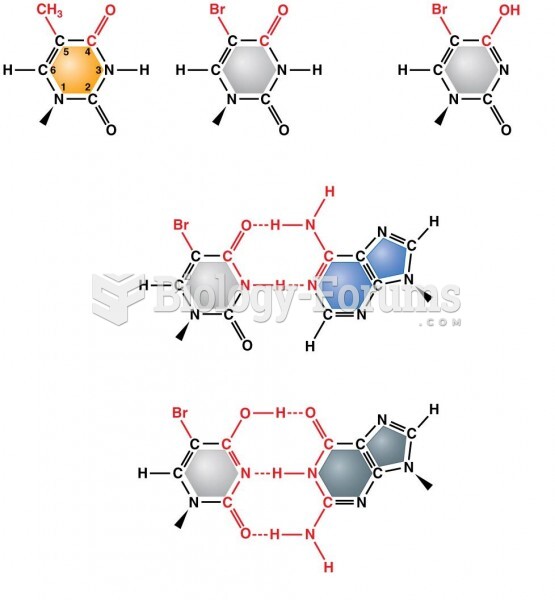|
|
|
The senior population grows every year. Seniors older than 65 years of age now comprise more than 13% of the total population. However, women outlive men. In the 85-and-over age group, there are only 45 men to every 100 women.
Once thought to have neurofibromatosis, Joseph Merrick (also known as "the elephant man") is now, in retrospect, thought by clinical experts to have had Proteus syndrome. This endocrine disease causes continued and abnormal growth of the bones, muscles, skin, and so on and can become completely debilitating with severe deformities occurring anywhere on the body.
By definition, when a medication is administered intravenously, its bioavailability is 100%.
More than 150,000 Americans killed by cardiovascular disease are younger than the age of 65 years.
Human stomach acid is strong enough to dissolve small pieces of metal such as razor blades or staples.







